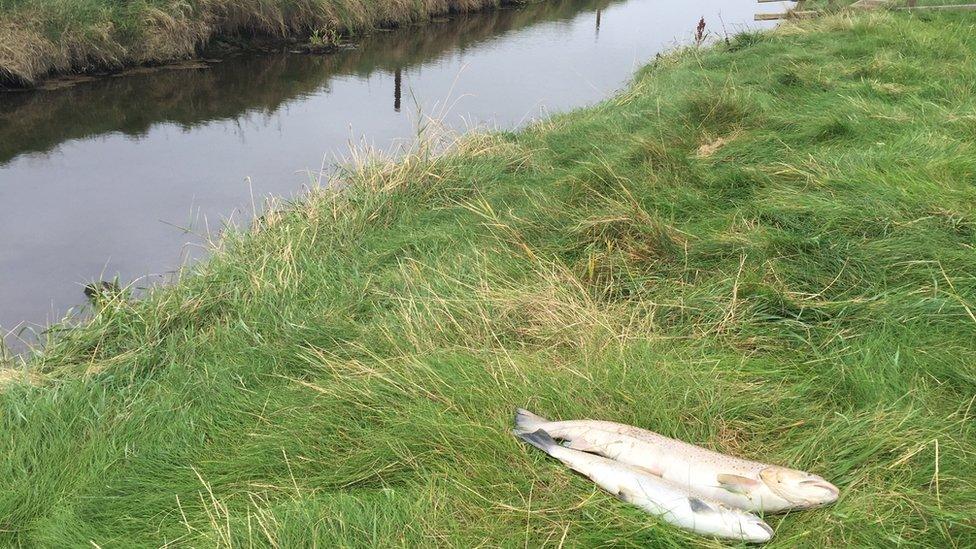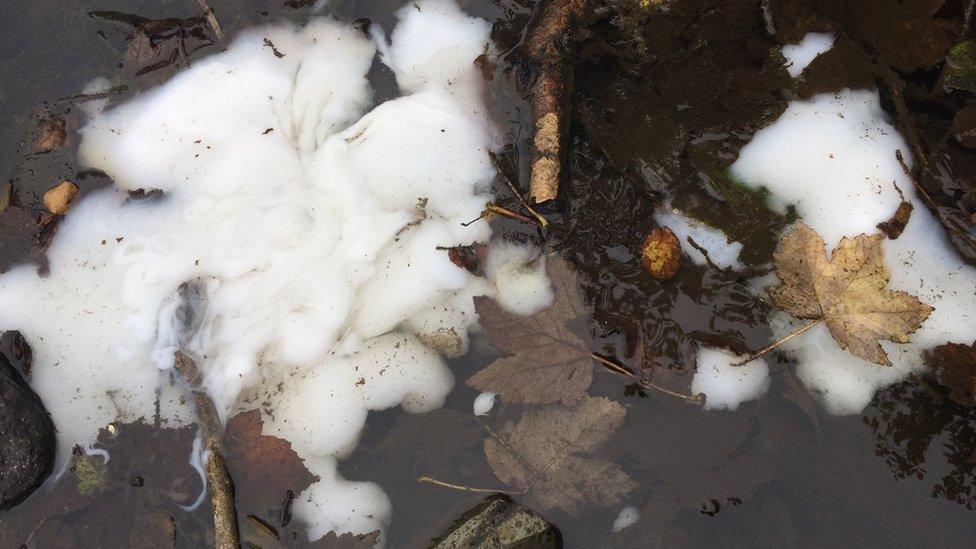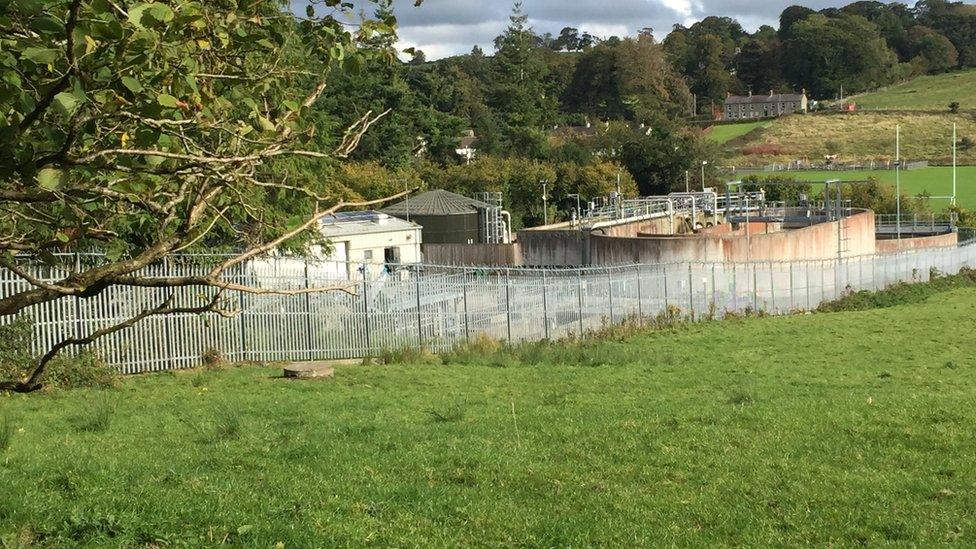NI Water's pollution fines reduced on appeal
- Published

Dead fish after chemcial spill from Annsborough treatment works
NI Water is "more interested in avoiding heavy fines than avoiding serious pollution", according to an environmental group.
The comments came after it emerged the company had successfully appealed some large penalties.
Friends of the Earth said the government-owned company had reduced some pollution fines by more than 50%.
NI Water said it appeals in less than one in 10 cases and had a duty to "safeguard public money".
It only appealed when it felt it was appropriate, it said.

Water samples were collected from the river after the chemical spillage
A Freedom of Information request revealed that NI Water had successfully appealed five cases out of 65 since 2008.
In 2014, a £10,000 fine for polluting the Cusher River from a sewage treatment plant at Tandragee, County Armagh was reduced to £5,000.
And in 2012, fines for two separate pollution incidents at Moneyreagh in County Down were cut from a combined figure of £12,000 to £3,000.
In the most recent case, a fine of £7,500 handed down earlier this year after an discharge from a facility in Saintfield, County Down, was cut to £2,000 on appeal.
The maximum fine for a pollution offence in Northern Ireland is £20,000.
Director of Friends of the Earth James Orr said the company seemed to have made a "strategic decision to manage the risk to itself by appealing certain fines".
"We would prefer to see the strategic effort of a publicly-owned company to act in the public interest by managing the risk to rivers and lakes."

Annsborough treatment works was the source of a recent pollution spill
NI Water was recently involved in a serious pollution incident from a treatment works at Annsborough near Castlewellan.
Last week, it was fined £13,000 for polluting the Blackwater River near Balloo in County Down.
Mr Orr said the level of fines in Northern Ireland was not a deterrent.
In Great Britain, the fines for pollution by what are privately-owned utility companies are much higher.
A spokesman for NI Water said a decision on appeals was taken "on the merits of each individual case".
He said it had invested £500m in the last three years upgrading the sewerage network and treatment facilities.
"Over the years, our work across the waste water network has done more to improve the quality of our water courses than it has ever done to harm them," he said.
Every year, the company returns 1.3bn litres of waste water from more than 1,000 treatment plants into 2,500 rivers.
Last year, it was responsible for 21 high or medium severity pollution incidents.